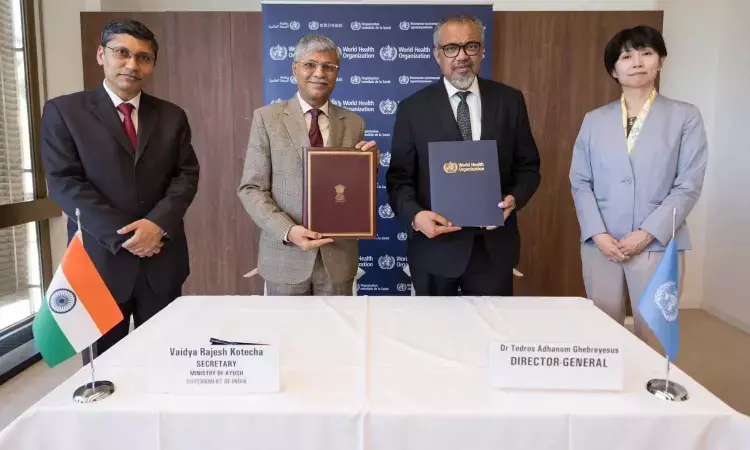
New Delhi: In a landmark move that is set to elevate India’s traditional medicine systems to the global stage, the Ministry of Ayush and the World Health Organization (WHO) signed an agreement on May 24, 2025, to begin work on a dedicated Traditional Medicine module under the International Classification of Health Interventions (ICHI).
Integration into Global Health Systems
The ICHI, which complements WHO’s International Classification of Diseases (ICD-11), serves as a global reference for health interventions. The new traditional medicine module will standardize and codify Ayurveda, Yoga, Siddha, Unani, and other Indian systems of medicine, enabling them to be:
- Scientifically documented
- Recognized internationally
- Integrated into global healthcare and insurance frameworks
PM Modi Highlights Milestone in ‘Mann Ki Baat’
During the 122nd episode of Mann Ki Baat, Prime Minister Narendra Modi emphasized the importance of the development. He noted, “This initiative will help Ayush reach a maximum number of people across the world in a scientific manner,” referring to the MoU signed in the presence of WHO Director-General Dr. Tedros Adhanom Ghebreyesus and Ayush Secretary Vaidya Rajesh Kotecha.
Key Benefits of the New Module
The Traditional Medicine ICHI module is expected to unlock several transformative advantages:
- Transparent billing and standardized pricing for Ayush interventions
- Health insurance integration for treatments like Panchakarma, Yoga therapy, Unani regimens, and Siddha procedures
- Enhanced hospital management and clinical documentation
- Global research alignment and improved access to traditional healthcare
WHO Endorses India’s Role
WHO Director-General Dr. Tedros posted on X (formerly Twitter):
“Pleased to sign an agreement for a $3 million contribution from #India to @WHO’s work on traditional medicine and the International Classification of Health Interventions… We welcome 🇮🇳’s continued commitment to #HealthForAll.”
A Scientific Leap for Traditional Wisdom
By being encoded into ICHI, traditional Indian therapies will be documented in a standardized global language, ensuring evidence-based recognition and policy integration worldwide. This also supports WHO’s strategy to integrate traditional medicine into universal health coverage.
This collaboration reflects India’s global leadership in traditional health systems and its commitment to making affordable, accessible, and trusted healthcare a global reality through its time-honored medical knowledge.